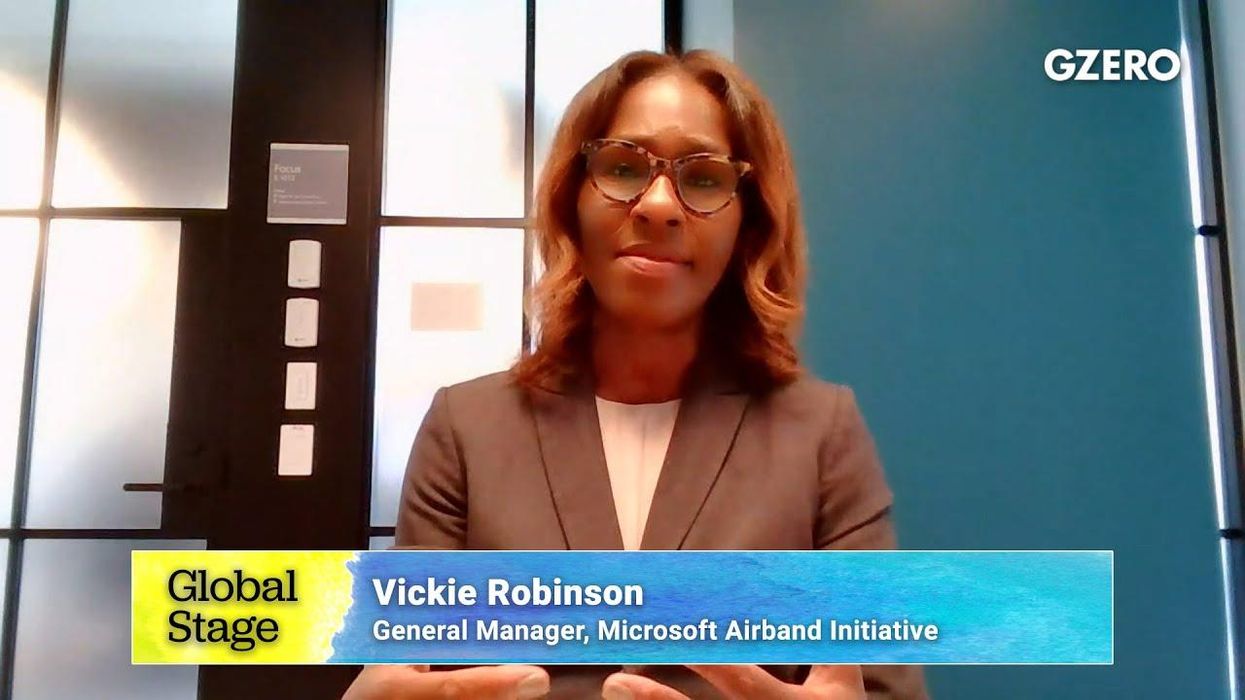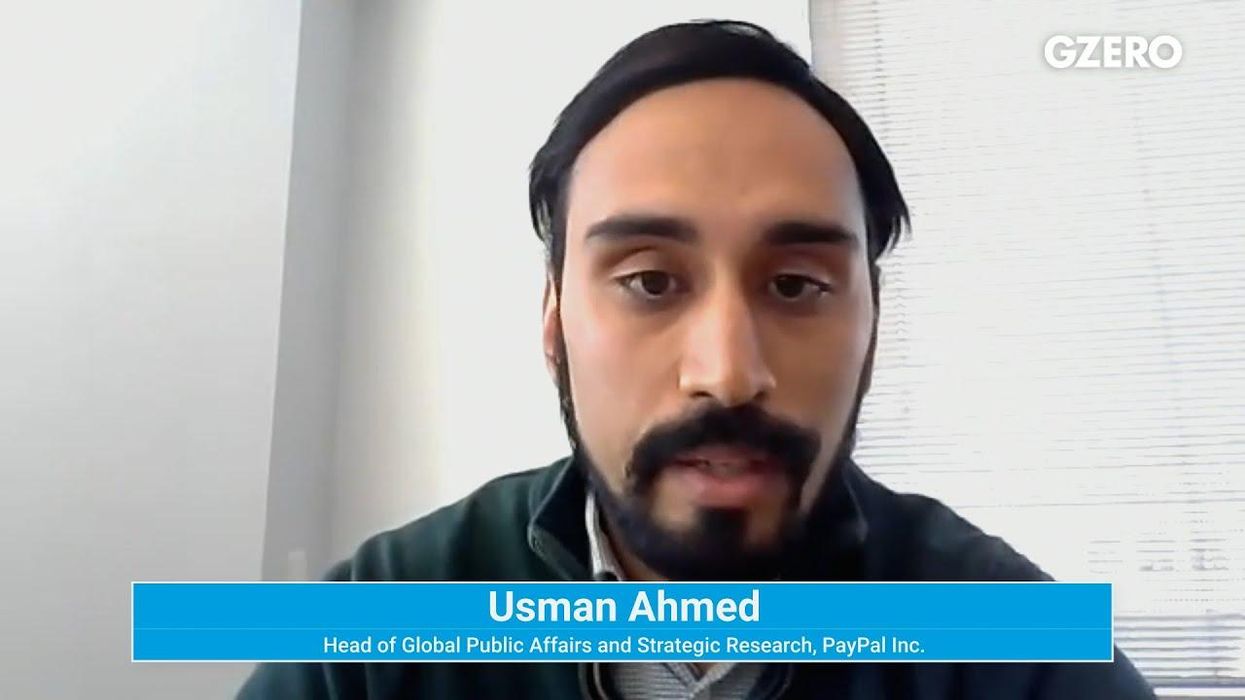Digital Equity
No internet, no education, says Vickie Robinson
The pandemic accelerated the shift to digital. But that left behind those offline, widening the digital access gap — with big implications for education. Vickie Robinson, general manager of Microsoft's Airband Initiative, recalls how she dealt with school closing as a mother. Having in-home connectivity helped her children transition from middle to high school with some sense of normalcy. But two-thirds of school-aged kids around the world didn't have that opportunity, she says during a Global Stage livestream conversation.
Nov 19, 2022


